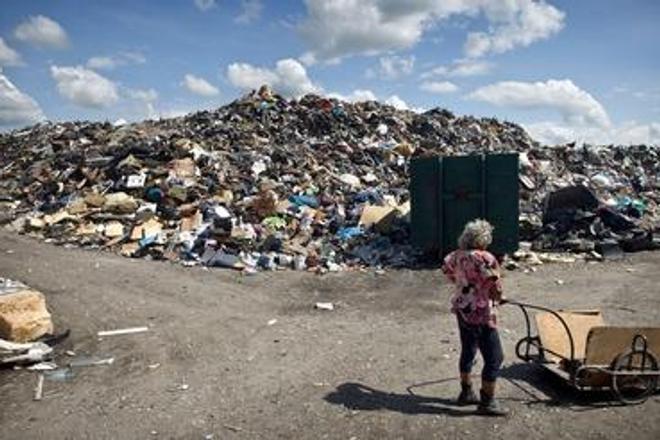But while the plan is to push Slovakia towards more modern and cleaner Europe, the new legislation has raised criticism from some affected sides calling on president not to sign the bill and return it to parliament for reworking.
Parliament adopted the law on waste introducing brand new rules in the waste management in Slovakia on March 17, which is meant to go into effect as of 2016. It abrogates the Recycling Fund and paying of recycling fees by producers and importers. It introduces the principle of broader responsibility, which means that producers and importers will be responsible for individual products from placing them on the market and until they are disposed of.
It should be producers who should treat separated waste via so-called organisations of producers’ responsibility to be authorised by the Environment Ministry. This should remove the burden from municipalities, which currently take care of all municipal waste.
“People will pay nothing for separated waste, the industry will take care of it for free,” Environment Minister Peter Žiga told the press on March 17, as quoted by TASR. “It will decrease the expenses on waste in municipalities by one-third, around €30 million.”
Žiga recalled that the law cancels the Recycling Fund, “which has already met its historical task”. The fund has collected fees of producers and importers of goods and supported from collected money via subsidies and loans projects for separation and recycling as well as supported financially municipalities and their associations in separation of waste and delivering it for further reuse.
The minister hopes that the new law would reduce the amount of municipal solid waste ending up in waste dumps, which is currently as much as 75 percent. It is estimated that Slovakia annually generates about 1.7 million tons of municipal solid waste, the TASR newswire wrote. The plan of the ministry is that the ratio changes in 20 percent of waste ending at dumps and 80 percent being re-used.
The law should also help to fight illegal dumps. According to the Environment Ministry there are officially about 2,500 illegal dumps, but unofficially there are as much as 7,000 illegal dumps across Slovakia, the SITA newswire wrote. Forty percent of a fee a citizen will pay for placing waste on a legal dump will go into the Environmental Fund while this money will be allocated for liquidation of illegal dumps. The law also increased powers of police during the fight against illegal dumps and increases fine for depositing waste on an illegal dump from current €160 to €1,500.
The fight against illegal waste dumping will remain in powers of municipalities. Towns and municipalities wanted to have competencies for removal of illegal dumps to be transferred to owners of land on which such a dump is located.
“Municipalities should be cleaning ladies at individuals,” said Vladimír Bajan, mayor of Bratislava’s Petržalka and vice-chairman of the Association of Towns and Villages of Slovakia (ZMOS), as cited by the Hospodárske Noviny daily on March 11 before the law was adopted.
The Environment Ministry argues that for a private individual, a person not doing any business, such a duty might bankrupt them. On the other hand, municipalities have funds, for example from fees citizens pay for collection and liquidation of their waste as well as the possibility to ask the Environment Fund for money.
“Municipalities know their local conditions the best and thus have the best possibility to identify the creator of the illegal dump, prevent its creation and extension,” Environment Ministry spokesman Maroš Stano told Hospodárske Noviny.
ZMOS has already expressed dissatisfaction with the adopted law. Members of its board recommended at their session on March 25 that President Andrej Kiska not to sign the bill in law.
Slovakia’s IT Association and the country’s largest organisation for recycling of electronic waste SEWA are also critical. Before the adoption of the law by parliament they called on Prime Minister Robert Fico to withdraw it for reworking, that the new legislation brings a risk of monopolisation of the system while authorisation of organisations of producers’ responsibility is a possible source of corruption and clientelism. In respect in the latter they said that while the bill lacks clearly defined rules for authorisation, the result of the process may depend on assessment of civil servants. This creates, according to ITAS and SEWA, risky environment for corruption.
Conversely, producers of branded products welcomed the bill as a way of introducing more transparent conditions in waste management.
The bill also introduces tougher conditions for scrapyards, which will not be able to pay for purchased metal in cash. Purchased metal will have to be stored for at least seven days and the buying process will be monitored by cameras.
The bill was keenly discussed, with as many as 2,665 entities providing comments after it was submitted for debate by the Environment Ministry last year. Meanwhile, 300 further amending proposals were included in the bill in parliament, with the opposition pointing out that this figure was higher than the number of individual paragraphs in the original legislation.
Preparation of the bill lasted more than two years. The cabinet approved the bill last December only after it had been reviewed by the European Commission. While according to the EC the draft bill implements the latest changes in waste directives, it objected some its regulations related to the internal market and free movement of goods and services, EurActiv.sk wrote last December.
The EC will assess whether the adopted waste law is in line with European rules but only after the law becomes effective and Slovakia sends its final wording, Andrej Králik from the Representation of the EC in Slovakia said as cited by EurActiv.sk.



 The new law should reduce the number of illegal dumps in Slovakia. (source: Sme)
The new law should reduce the number of illegal dumps in Slovakia. (source: Sme)